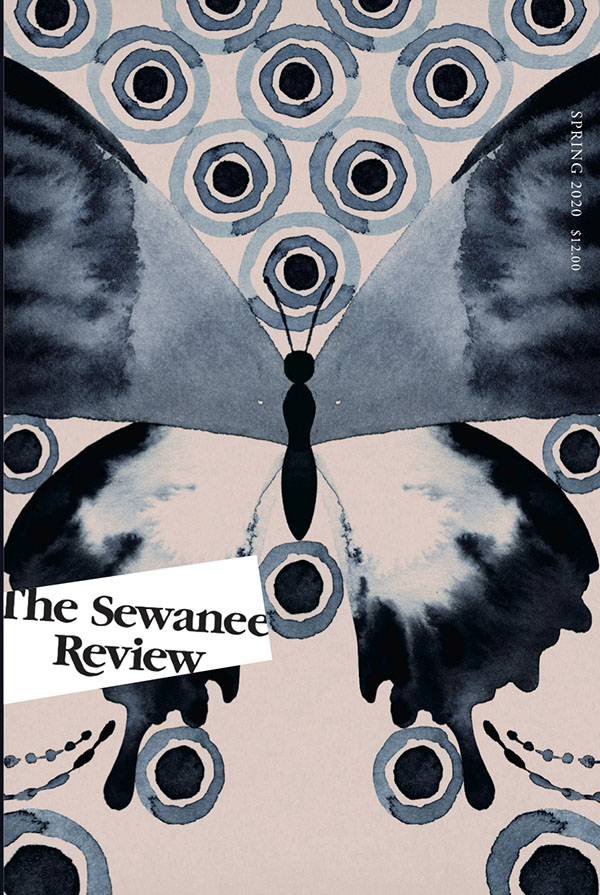In 2016, when I took over as editor of the Sewanee Review, I inherited this fact: the Review is the oldest, continuously published literary quarterly in America. My focus initially was on our modernization and redesign, our online presence, and all the new voices that came with those changes. The Sewanee Review, went our tagline, New. Since 1892. However, with the online arrival of our Spring 2020 issue—and the print edition to follow in mid-April—our uninterrupted record of publication is, for me, a source of great pride.
I’m proud, first and foremost, of my staff. Like every institution in the country, we’ve been affected by the COVID-19 pandemic, forced to work remotely, without the pleasure of proximity, the foxhole fellowship of producing something near each other, and yet the staff has adapted to these new circumstances without a hitch. About this team: the majority of our masthead is comprised of University of the South graduates. Assistant editors Spencer Hupp (C’17) and Hellen Wainaina (C’18) and editorial assistant Jennie Vite (C’19) all came straight from their graduation to work at the Review. They are the quarterly’s first line of readers and editors; they handle every aspect of its production, from first edit pass to each issue’s web migration; they produce our podcast, manage our social media, solicit new authors, and shape our new features, like The Corona Correspondences. In this most uncertain of times, it gives me tremendous hope for the future of American literature that this magazine is being produced, in large part, by such talented, industrious, and ambitious young people. Along with their managing editor—and I’d like to announce here, our new poetry editor, the first in the Review’s history—Eric Smith, I thank them. I ask a great deal of my staff, and they always exceed my expectations.
They’re the reason, then, that this issue is ready for your consumption, on time, when all of us need something good to read, when truth and beauty are, in my opinion, the most effective antidote to the Coronavirus Task Force briefings and the foggy lack of concentration we’re all suffering from—“viral time,” it’s been dubbed—this slowed state in which we shelter in place while being inundated at the greatest possible speed with crisis-level amounts of life-or-death information.
Enjoy, then, poetry from previous contributors Mary Jo Salter, Caki Wilkinson, and Austen Leah Rose, as well as a pair of writers new to our pages, Heather Christle and Kimberly Johnson. We have short fiction from Lea Carpenter as well as an excerpt from David James Poissant’s debut novel, Lake Life. I’m thrilled to welcome Peter Fish to our pages, whose deeply charming story “Lull Lane” was one of several finalists for our 2019 Fiction & Poetry contest. Regular contributor Justin Taylor reviews Ottessa Moshfegh’s new novel, Death in Her Hands, through the lens of her entire oeuvre. John Psaropoulos brings us another essay in his series on the migrant crisis in Greece, while the poet A. E. Stallings traces the etymology of the word “migrant” in one of the more moving craft essays ever to grace these pages. By way of her immediate family, Sylvia Sellers-García explores how the repressive Guatemalan regime is trying to disappear its past for nefarious purposes. Christian Lorentzen’s reminiscence on his family’s history in the trucking business seems more timely than ever, when, along with our healthcare workers, it seems we should be most grateful to those who keep our supply chains moving. You’ll also read an excerpt from Stephanie Danler’s highly anticipated memoir Stray, which is also our online feature and free to all. You can hear more from Stephanie—and hear her read from Stray—in our current podcast episode.
Revel in spring during your breaks from lockdown. It’s been one of the pleasant surprises of this epidemic—this great migration, at the end of each day, of families and couples, all strolling at a safe distance from others, along quieter streets, less congested roads, under clearer skies, all of us taking the time to notice, just for a moment, how beautiful things are.

